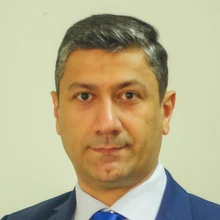
The Case for a Self-Regulating Ceasefire in Ukraine  By Tabib HUSEYNOV, independent policy analyst and researcher
By Tabib HUSEYNOV, independent policy analyst and researcher
Diplomatic initiatives to end the war in Ukraine are fundamentally misguided, because they seek a political solution that remains unattainable under current circumstances. International efforts should instead focus on securing a stable ceasefire that locks in the existing contact line without conditioning its achievement on impractical and damaging political concessions on Ukraine’s sovereignty or the fate of its occupied territories. The durability of such a ceasefire should rest primarily on Ukraine’s own strength, not on international peacekeepers or Russia’s goodwill.
Ukraine and Russia are locked in a grinding stalemate. Neither can achieve a decisive military victory any time soon, and neither can accept the political terms the other demands. Russian forces make incremental advances, but at the expense of staggering losses. Latest data on Russian casualties from the Ukrainian General Staff and the Ukrainian open-source mapping project Deep State suggest that between January and December 2025, Russia lost roughly 96 troops per square kilometre taken. With roughly 5,000 square km of Donetsk Oblast still under Ukrainian control, Russia would need to sacrifice close to half a million servicemen to occupy the remainder.
READ MORE
- EGF Editor |
Published on EGF: 13.01.2026
| Security
-
Exporting Power: Türkiye’s Defence Industry and the Politics of Strategic Autonomy
 By Fuad SHAHBAZOV, Baku-based independent regional security and defence analyst
By Fuad SHAHBAZOV, Baku-based independent regional security and defence analyst
Over the last decade, the development of Turkey’s defence industry has become a crucial aspect of its soft power diplomacy in both regional and global politics. The country has made significant efforts to invest heavily in the development of its indigenous defence industry, reducing its dependence on imports and becoming a leading defence exporter in global markets. The rapidly changing regional and global geopolitical landscape, particularly after the Arab uprisings, has prompted Ankara to expand the country’s defence industry and reduce its reliance on overseas arms procurement and international supply chains. Since the ruling AKP government came to power, the country’s indigenous defence industry has undergone a significant transformation, steadily becoming the twelfth-largest arms exporter, according to the Stockholm International Peace Research Institute (SIPRI). Given the regional instability marked by violent uprisings and sectarian conflicts, Türkiye’s pursuit of defence industry development can be understood as a primarily threat-driven strategy. This approach reflects an effort to enhance national defence capabilities and ensure strategic autonomy in response to both external security challenges and internal vulnerabilities. READ MORE
- EGF Editor |
Published on EGF: 22.12.2025
| Security
-
How China Shapes the Drone Divide in the Russia-Ukraine War
 By Fuad SHAHBAZOV, Baku-based independent regional security and defence analyst
By Fuad SHAHBAZOV, Baku-based independent regional security and defence analyst
The war in Ukraine has evolved into a complex geopolitical conflict while demonstrating the transformative role that drone technology has played in shaping the course of the war. Following the Russian invasion of Ukraine in 2022, the Ukrainian Armed Forces began to actively embrace modern warfare technology, especially the use of First-Person Drones (FPVs) which were critical in inflicting grave damage on Russian forces using ‘meat grinder’ tactics to storm Ukrainian front-line positions. In the past two years, Ukrainian forces have used FPV drones for real-time intelligence and reconnaissance of Russian positions and troop movements while also deploying cost-effective “kamikaze” drones to target Russian recruits, tanks, howitzers, and other armoured vehicles. Although drone technology is now a core part of Ukraine’s struggle against Russian intervention, Kyiv initially faced an acute shortage of unmanned aerial vehicles (UAVs) in the early stages of the war, while the requirements of its frontline forces were partially met by civilian drones, mostly produced by the Chinese company DJI. READ MORE
- EGF Editor |
Published on EGF: 05.12.2025
| Security
-
Taking up Maritime Security Challenges and Stakes : A European Governance Mechanism?
 By Jean-Marie L’HUISSIERE, independent consultant and expert on European maritime policies
By Jean-Marie L’HUISSIERE, independent consultant and expert on European maritime policies
While the European Union (EU) benefits today from a large regulatory acquis and from a vast experience in maritime operations and programmes, efforts must go on with regard to coordination and consistency to overcome sectoral divisions and increase efficiency. Taking up challenges and stakes in the maritime domain requires to implement concretely the integration principles and the comprehensive approach, by coordinating the use of both civilian and military resources and capabilities available to the EU. […] An initiative aiming at establishing an inter-institutional mechanism for maritime governance at strategic level opens prospects in this direction. READ MORE
- EGF Editor |
Published on EGF: 05.12.2025
| Security
-
TRIPP/Zangezur Corridor Must Serve both Peace and Connectivity
 By Vasif HUSEYNOV, PhD, Head of Department, AIR Center, Adjunct Lecturer, ADA and Khazar Universities, Baku
By Vasif HUSEYNOV, PhD, Head of Department, AIR Center, Adjunct Lecturer, ADA and Khazar Universities, Baku
The Zangezur Corridor – recently rebranded as the Trump Route for International Peace and Prosperity (TRIPP) — has become one of the most discussed and debated infrastructure projects in Eurasia. Stretching 43 kilometres through Armenia’s Syunik Province, it promises to reconnect mainland Azerbaijan with its Nakhichevan exclave and, through Türkiye, to Europe. It is a project of logistics and trade — a corridor capable of shortening cargo transit from Asia to Europe from 18 days to 12 along the Middle Corridor, reducing dependency on maritime choke points, and creating new opportunities for growth across the South Caucasus. In practice, however, the TRIPP risks becoming a stage for geopolitical contestation unless regional actors ensure that its purpose remains economic, inclusive, and depoliticized. READ MORE
- EGF Editor |
Published on EGF: 13.11.2025
| Security
-
Russia’s Exclusion from Joint Caspian Drills Shows Regional Shift
 By Fuad SHAHBAZOV, Baku-based independent regional security and defence analyst
By Fuad SHAHBAZOV, Baku-based independent regional security and defence analyst
On October 25, Azerbaijan participated in the Nusret-2025 Invitation Exercise, a joint military drill held in the Gulf of Soros in Türkiye. The exercise aimed to strengthen cooperation between the Turkish Naval Forces and the naval forces of friendly and allied countries, such as Azerbaijan. This is the latest example of Azerbaijan’s partnership with Türkiye in strengthening its naval forces. The Caucasus region, particularly the Caspian littoral, is emerging as a focal point of geopolitical competition amid rising tensions between Russia and the West. The Caspian, often referred to as a “Russian lake” during the Soviet era, has presented new challenges to Russia’s regional dominance since 2022. Until the 2020s, Russia remained the most powerful naval power in the Caspian Sea, despite Kazakhstan, Azerbaijan, and Iran systematically enhancing their naval capabilities over the past three decades. Russia’s full-scale invasion of Ukraine in 2022, as well as regional conflicts and reordering, have exacerbated Moscow’s declining leverage and hegemony in the South Caucasus and Central Asia. READ MORE
- EGF Editor |
Published on EGF: 07.11.2025
| Security
-
Russia Tests NATO’s Eastern Defences
 By Yunis GURBANOV, PhD, Senior Advisor at the AIR Center, Baku
By Yunis GURBANOV, PhD, Senior Advisor at the AIR Center, Baku
In September, countries in the North Atlantic Treaty Organization (NATO) reported several incidents involving airspace violations. On September 10, 19 drones crossed into Polish territory, prompting Warsaw to call for Article 4 consultations. In a separate episode on September 19, three Russian MiG-31 jets briefly entered Estonian airspace before being intercepted by NATO air policing units. NATO Secretary-General Mark Rutte described these developments as concerning and emphasized that the Alliance remains attentive to safeguarding its members’ security. These incidents reflect an increasingly complex security environment along NATO’s eastern flank. The combination of drone activity and jet overflights highlights the challenges of managing airspace security in an era of hybrid threats. At the same time, the use of unmarked drones, short-duration incursions, and deactivated transponders complicates attribution and leaves room for differing interpretations of intent. READ MORE
- EGF Editor |
Published on EGF: 17.10.2025
| Security
-
The Acceleration of Putin’s Shadow War
 By Fuad SHAHBAZOV, Baku-based independent regional security and defence analyst
By Fuad SHAHBAZOV, Baku-based independent regional security and defence analyst
Air incursions, military drills, and escalating hybrid warfare hint at a new and alarming level of Russian aggression. Is it just for show?
Russia and Belarus held joint military drills in September. But the biennial exercises were overshadowed by something that may be more ominous — an outbreak of drone and aerial incursions across Poland and the Nordic-Baltic states that illustrate NATO members’ vulnerability to disabling attacks on fragile systems like civil airports. Zapad-2025 is an established Kremlin method of baring its military teeth to its near-neighbours. The official reason for September’s large-scale exercises is to test the ability of the two countries to repel an enemy attack, retake lost territory and secure the borders of what they refer to as their “Union State”. They have often triggered alarm across the NATO alliance, particularly in the Baltic states and Poland, which have a deep historical and recent sensitivity to Kremlin aggression. READ MORE
- EGF Editor |
Published on EGF: 07.10.2025
| Security
-
Iran–Israel War’s Implications for Armenia
 By Benyamin POGHOSYAN, PhD, Senior Research Fellow at the APRI Armenia
By Benyamin POGHOSYAN, PhD, Senior Research Fellow at the APRI Armenia
The June 2025 12-day Iran–Israel War and US military strikes targeting Iranian nuclear sites created shock waves in the Middle East and beyond. Iran and Israel exchanged strikes twice in 2024, but these were limited and mostly symbolic operations. While the war did not solve critical issues between Iran and Israel, and there is a possibility of another escalation, it demonstrated the volatile nature of Middle Eastern geopolitics, shaped by evolving balance of power. Armenia is a neighbour of Iran, and this fact alone is enough to mean that Armenia will be affected by any Iran–Israel confrontation. However, there are other factors that can amplify the implications for Armenia of a potential long-term war against Iran.
READ MORE
- EGF Editor |
Published on EGF: 24.07.2025
| Security
-
Kazakhstan Aims to Modernize Military Through Multi-Vector Diplomacy
 By Fuad Shahbazov, Baku-based independent regional security and defence analyst
By Fuad Shahbazov, Baku-based independent regional security and defence analyst
Kazakhstan has recently been making steps to improve its defence capabilities. In April 2025, the Kazakh Ministry of Defence confirmed that a legislative framework was established to regulate the Defence Industry Development Fund, which was created in December 2023. The new defence fund aims to acquire and manufacture domestically crucial military hardware, such as artillery ammunition, weapons systems, and combat modules. For this purpose, the Kazakh government plans to allocate approximately $265 million from the state budget. Earlier, on March 3, Kazakh Defence Minister Ruslan Zhaksylykov announced the establishment of a new defence industry centre at the only tank repair plant in Central Asia in the Eastern city of Semey. Zhaksylykov proclaimed that the new hub aims to strengthen “Kazakhstan’s self-sufficiency in defence production” through “expanding the ability to both maintain and manufacture crucial military technologies locally”. As the regional order in Eurasia shifts amid Russia’s war against Ukraine, Kazakhstan is opting to rely on its armed forces, domestic military resources, and international security partnership formats to counter any potential threat. READ MORE
- EGF Editor |
Published on EGF: 09.07.2025
| Security
-
